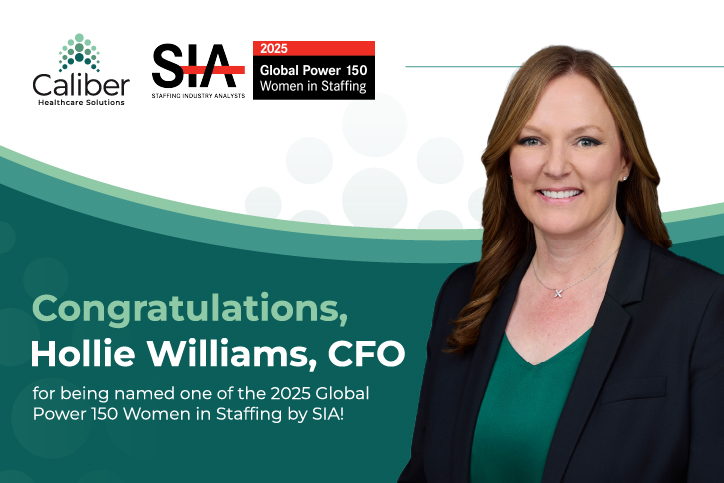
If you’ve heard the term MSP tossed around in healthcare leadership meetings but still aren’t sure exactly what it means—or why it matters—you’re not alone.
An MSP, or Managed Service Provider, is an outsourced partner that helps healthcare organizations streamline complex services like staffing, vendor management, compliance tracking, and more. In theory, an MSP should take the pressure off your internal teams and deliver better results with less operational friction.
But not all MSPs live up to that promise. And when it comes to staffing—especially locum tenens staffing—the difference between a generic MSP and a purpose-built one can mean the difference between a smooth operation and a daily scramble.
Let’s unpack what an MSP really is, what it’s supposed to do, and how to spot the signs that you might need a better one.
In healthcare, a Managed Service Provider (MSP) is a third-party organization that takes on key operational responsibilities so your internal teams can focus on clinical care and strategic priorities. MSPs are common in both clinical and non-clinical settings, and can support everything from:
For the purposes of this article, we’ll focus specifically on healthcare staffing MSPs—a solution designed to reduce the administrative burden and complexity of managing locum tenens, contract, or PRN providers across departments and facilities.
The goal of a healthcare staffing MSP is simple: make your staffing process easier, faster, and more effective.
At a high level, these programs are meant to:
In short, an MSP should save your team time and give you more control—not more work.
But if you’re not seeing those results, it might be time to dig deeper.
On paper, most MSPs promise the same things: streamlined processes, lower costs, and fewer staffing headaches. But in practice, many healthcare leaders find themselves asking the same question: Why does this still feel so hard?
That’s because traditional MSPs often weren’t built with healthcare staffing in mind. Instead of simplifying your operations, they can introduce new frustrations, like:
If your MSP adds layers of complexity instead of removing them, it’s not doing its job. The right partner should make your team’s day-to-day easier—not more stressful.
Not every healthcare facility needs an MSP. But if your team is constantly caught in staffing limbo, it might be time to reassess your current model.
Here are a few signs that an MSP could help:
Any of these sound familiar? We thought so. Many healthcare leaders face the same challenges. Great managed service providers can turn those pain points into a performance advantage.
At its core, a healthcare MSP should help you do more with less—less time, less admin burden, and less guesswork. The goal isn’t just to fill shifts or consolidate vendors. It’s to build a workforce strategy that works smarter, not harder.
But here’s the catch: not all MSPs are created equal. If you’re still spending valuable time chasing down credentialing updates, juggling multiple invoices, or reacting to last-minute coverage gaps, your MSP may be falling short of its purpose.
If your current MSP still feels like more work than it’s worth, let’s talk about what a better staffing experience looks like. Reach out to a member of our team today.
.png)
Posted on
February 3, 2026
Caliber Healthcare Solutions, a leading healthcare staffing agency, announced today that it has achieved a rare and significant milestone by winning ClearlyRated’s 2026 Best of Staffing® Client, Talent, and Employee Awards for Service Excellence. This marks the first time in company history that Caliber has earned the Employee Satisfaction Award, completing a first-ever, three-award sweep that reflects excellence across every stakeholder group the firm serves.

Posted on
October 9, 2025
Caliber is proud to announce that our Chief Financial Officer, Hollie Williams, has been named to the Staffing Industry Analysts (SIA) 2025 Global Power 150 Women in Staffing list. This prestigious recognition honors women who are shaping the future of the staffing industry through innovation, leadership, and measurable impact.

Posted on
August 14, 2025
The OB/GYN workforce is at a pivotal moment. Demand is growing, especially in underserved regions. Meanwhile, retirements, burnout, and legislative pressure continue to shrink the supply of practicing physicians.
.png)
Posted on
February 3, 2026
Caliber Healthcare Solutions, a leading healthcare staffing agency, announced today that it has achieved a rare and significant milestone by winning ClearlyRated’s 2026 Best of Staffing® Client, Talent, and Employee Awards for Service Excellence. This marks the first time in company history that Caliber has earned the Employee Satisfaction Award, completing a first-ever, three-award sweep that reflects excellence across every stakeholder group the firm serves.
.png)
Posted on
January 18, 2026
During National CRNA Week 2026 (January 18–24), we recognize and celebrate CRNAs for their critical role in modern healthcare and their lasting impact on patient outcomes nationwide.

Posted on
October 9, 2025
Caliber is proud to announce that our Chief Financial Officer, Hollie Williams, has been named to the Staffing Industry Analysts (SIA) 2025 Global Power 150 Women in Staffing list. This prestigious recognition honors women who are shaping the future of the staffing industry through innovation, leadership, and measurable impact.
.png)
Posted on
February 3, 2026
Caliber Healthcare Solutions, a leading healthcare staffing agency, announced today that it has achieved a rare and significant milestone by winning ClearlyRated’s 2026 Best of Staffing® Client, Talent, and Employee Awards for Service Excellence. This marks the first time in company history that Caliber has earned the Employee Satisfaction Award, completing a first-ever, three-award sweep that reflects excellence across every stakeholder group the firm serves.
.png)
Posted on
January 18, 2026
During National CRNA Week 2026 (January 18–24), we recognize and celebrate CRNAs for their critical role in modern healthcare and their lasting impact on patient outcomes nationwide.

Posted on
August 14, 2025
The OB/GYN workforce is at a pivotal moment. Demand is growing, especially in underserved regions. Meanwhile, retirements, burnout, and legislative pressure continue to shrink the supply of practicing physicians.